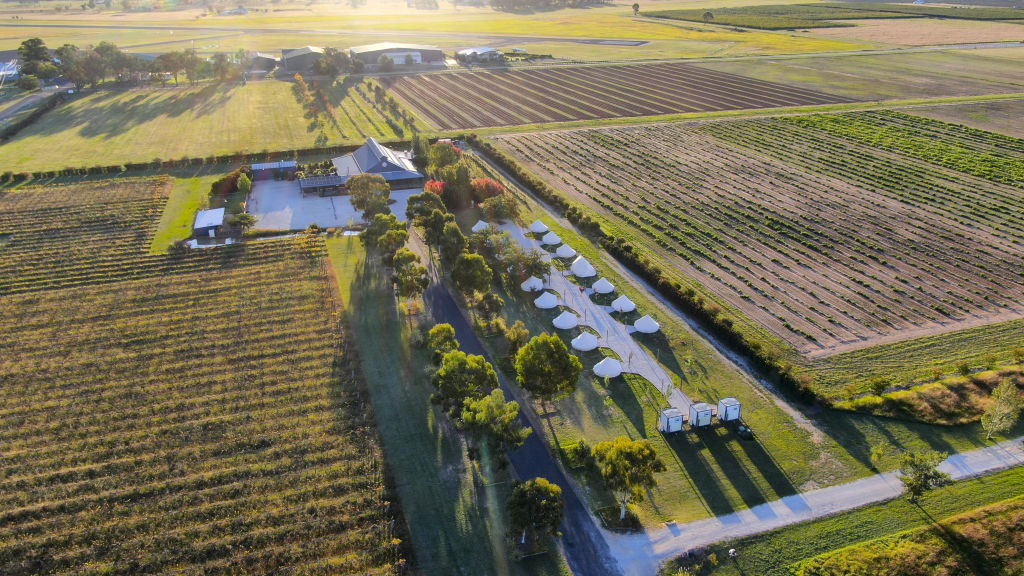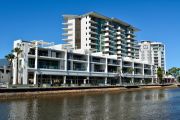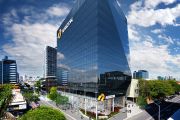
City dwellers chase new horizons in the country
With the COVID-19 pandemic changing many facets of daily living, the crisis has also prompted many city folk to trade the hustle and bustle of urban life for a rural tree change.
Mathew Tiller, LJ Hooker head of research, said lockdowns, restrictions and social distancing had given people more time to think about their current lifestyle and the way they lived, or wanted to live.
“A big part of this is thinking about how they work and, more importantly for real estate markets, where they work from. For some, this self-assessment has seen them decide to move out of Australian CBDs and into regional and rural communities,” he said.
Remote working, affordability and realising it was time for a change were the three factors contributing to the rise in housing demand in regional and rural towns, Mr Tiller said.
“The pandemic has led people to reassess how and where they want to live but also what they want to do,” he said.
“This has led to many deciding that the city life is no longer what they want and a shift to a quieter, smaller regional or rural hub is where they want to start their slower-paced life.”
Mudgee, 265 kilometres north-west of Sydney, has been popular among families who had one or both parents retaining their job thanks to remote working and flexible work environments, Adam Woods, McGrath Mudgee sales manager, said.
Better quality of life, more time at home with kids as a result of reduced or no travel to work time, less stress, health and affordability were among the reasons buyers had been drawn to Mudgee, he said.
“A good yardstick on this is the enrolment at schools. The kindergarten intake for St Matthews Central School in Mudgee for 2021 had capacity for 90 children; it has received 120 applicants,” he said.
Mr Woods said the migration of people to regional areas was creating a diverse fabric of society where you could get a taste of what the locale offered commercially, culturally and community-wise.
“It’s the ‘latte effect’; when I grew up in Mudgee you could get an instant coffee at one of the sandwich bars or bakeries,” he said.
“Now we have dozens of cafes, each unique in their offering that service the influx of weekly visitors, in addition to the local community that now demands an experience similar to what they had living in Sydney, Melbourne or London.”
The Agency property partner Tori Lund, who specialises in the Hunter Valley area of NSW, said since the pandemic hit there had been an oversupply of buyers and a shortage of stock, which had led to strong competition.
“We have been getting multiple offers on each property and large groups of attendees to our open for inspections. We are also selling a lot of properties prior to market due to the demand,” she said.
“We are seeing an influx of Sydney and out-of-area buyers in our marketplace at the moment.
“Since COVID-19 has allowed people to work from home, we are finding that buyers are moving to our area for a more affordable and open-space lifestyle. We believe they are seeking a tree change for space and safety and our area strongly provides this with its close proximity to the Hunter Expressway, vineyards and Newcastle.”
McGrath Mansfield – Regional Victoria principal Kate McDougall said Mansfield, some 2.5 hours from Melbourne, had experienced a resurgence of city folk calling the Victorian Alps region home.
“Families have not enjoyed being locked down for long periods of time in metropolitan areas in confined spaces. Once you have sold in Melbourne you can buy a pretty amazing property here with room for the whole family to spread out and some money left over in the bank,” she said.
Ms McDougall said the influx was helping the local economy grow and was great for businesses.
“The locals in our community are already used to a huge influx of people flocking seasonally to our lakes and rivers in summer and then to Mount Buller and Mount Stirling in the winter months,” she said.
“We certainly have enough room for everyone and it’s such a fantastic community to live in.”
Plans brought forward
Sydney caterers Sophie and Nick Storey’s long-term goal was to trade city life for the country, but after the COVID-19 crisis saw their successful business come to a stop, they fast-tracked their plans.
The couple and their son Mack, 2, will soon call Blue Wren – an iconic farm stay wedding and events destination in Mudgee – home.
“I have a country background … so I guess for a long time I had a long-term plan to exit Sydney and go somewhere regional, and to be honest we have been looking for opportunities for a number of years and this came about,” Mrs Storey said.
“One other thing we identified is that there is just so much opportunity in these regional areas, particularly with food and hospitality in general and so I guess it’s something we are really keen to tap into.
“The space we worked in in Sydney, in terms of the catering, we looked after a lot of luxury brands and major events so [it was a] fiercely competitive space.
“It was an amazing business but to be able to step away and get out of Sydney – and obviously having a little boy – there is another incentive to get out of the city.”
Ms Storey said Blue Wren was a great asset to capitalise on and they had future plans to incorporate a retail concept, in addition to it being a wedding-venue destination.










